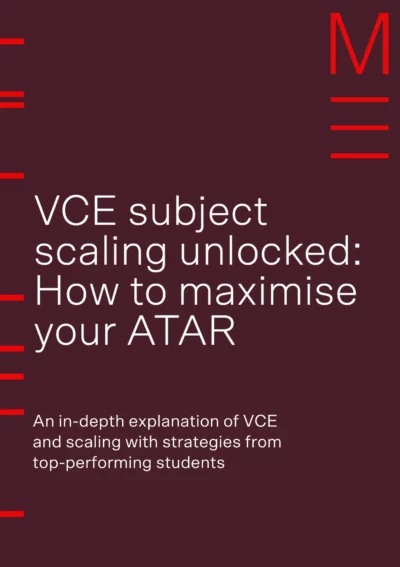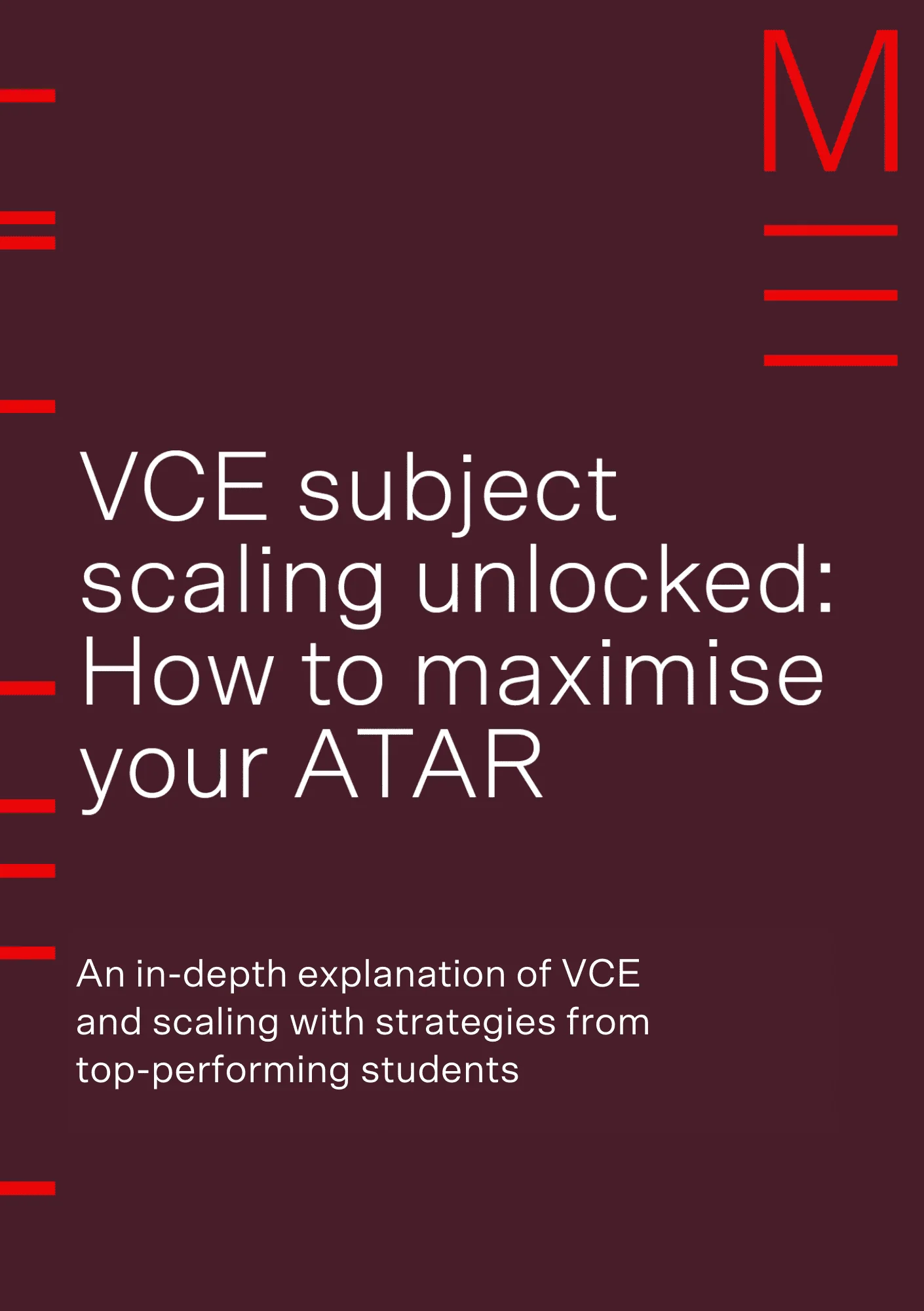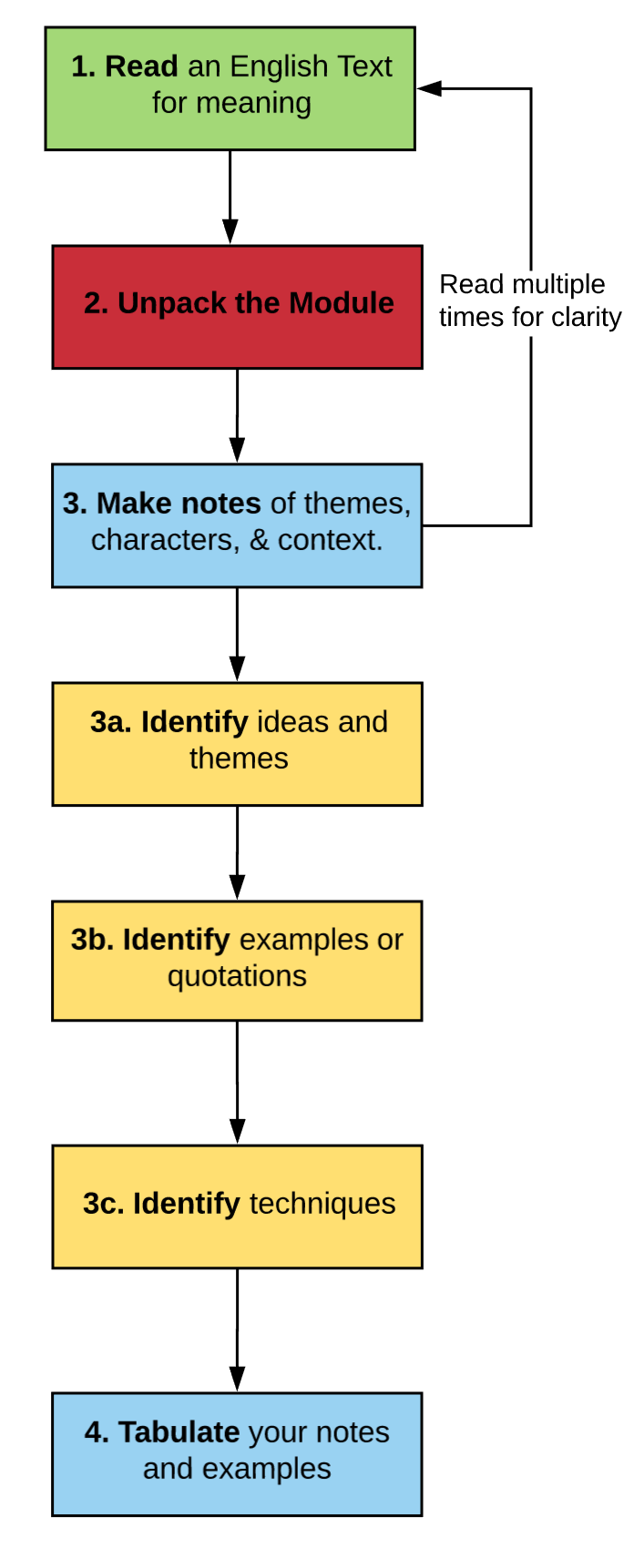Welcome to Matrix Education
To ensure we are showing you the most relevant content, please select your location below.
Select a year to see courses
Learn online or on-campus during the term or school holidays
Learn online or on-campus during the term or school holidays
Learn online or on-campus during the term or school holidays
Learn online or on-campus during the term or school holidays
Learn online or on-campus during the term or school holidays
Learn online or on-campus during the term or school holidays
Learn online or on-campus during the term or school holidays
Get HSC exam ready in just a week
Select a year to see available courses
Science guides to help you get ahead
Science guides to help you get ahead

Now that you understand how it’s calculated, let’s look at some effective strategies from former Matrix graduates to maximise your VCE study score and achieve your best ATAR.
An in-depth explanation of VCE and scaling with strategies from top-performing students. Fill out your details below to get this resource emailed to you. "*" indicates required fields
Free 2025 VCE ATAR & Scaling Guide Download

Free 2025 VCE ATAR & Scaling Guide Download
Set yourself goals so you know what the finish line looks like. This is important in helping you find the shortest path to get there.
Matrix graduate Sally Kim wrote her goal of a 99.95 ATAR on a poster and stuck it in front of her desk in Year 11 so she could see it every day for the next 2 years. Visualising it every day helped her stay focused on her goals.
Sally suggests posting your ATAR goal on your bedroom dorm, computer screen, phone lock screen, bathroom mirror, or anywhere you’ll be forced to see your goal every day.
It’s important to visualise your goals to maintain focus and motivation.
Since different scaling is applied to different VCE studies, your ATAR will be slightly affected by your subject combination.
The table below shows the ATAR breakdown for a student scoring in the top 15% (scoring 38 or more) for a Humanities-oriented subject combination. Let’s compare two different subject combinations with the same percentiles.
| Table 1: ATAR estimate for humanities-oriented subject combination. | ||
| Subject | Raw Study Score | Scaled Study Score |
| English | 45 | 42.78 |
| Geography | 45 | 47.52 |
| Foundation Mathematics | 42 | 40.43 |
| Ancient History | 40 | 38.56 |
| Religion and Society | 39 | 37.20 (10%) |
| Sociology | 38 | 35.26 (10%) |
| Aggregate | 176.54 | |
| ATAR | 96.65 | |
The table below shows the ATAR calculation for a student scoring in the top 15% (scoring 38 or more) for a Maths & Science-oriented subject combination.
| Table 2: ATAR estimate for Maths & Science-oriented subject combination. | ||
| Subject | Raw Study Score | Scaled Study Score |
| English Language | 45 | 42.78 |
| Chemistry | 45 | 51 |
| Mathematics Methods | 42 | 46.19 |
| Chinese Second Language | 40 | 44.96 |
| Physics | 39 | 40.49 (10%) |
| Psychology | 38 | 37.93 (10%) |
| Aggregate | 192.77 | |
| ATAR | 99.10 | |

Download your free VCE Subject Scaling Guide
Discover expert VCE scaling tips and strategies
to boost your score!
To do well in the VCE, you have to ace your English study.
English is the only compulsory VCE study and therefore will be counted towards the calculation of your aggregate and ATAR regardless of how low your scaled score is.
To make things more complicated, the scaling of English depends on the study you choose. English usually scales down while English Literature and English Language scale up.
English is very different to Mathematics and Science, in that it’s time intensive:
To study for English, you need to plan well in advance. You can’t put off English until just before your assessment tasks and exams – it wouldn’t be enough time to prepare.
Successful English students read ahead, make notes as they go, and develop a habit of writing practice essays, creative writing, and doing past papers throughout the year. They understand studying English takes a lot of intentional time.
Here is a process all Matrix English students learn and follow for studying VCE English:

Is this you?
Matthew spent quite a bit of time and effort studying, only to be disappointed after seeing his first graded assessment. Neither Matthew nor his parents were pleased. His parents urged him to study even harder, and Matthew committed to six months of intense preparation until the final exams. When the results came in, he was surprised to see he had improved only slightly. Another year of hard work seemed wasted.
John and his parents blamed his ineffective study habits…
What do you think went wrong?
While poor study methods could be part of the issue, the core problem was Matthew’s failure to realise his progress or issues quickly enough.
Doing the same thing the same way produces the same results.
If he had tracked his performance closely he could have addressed his challenges much earlier and fixed his study methods.
So what should you do?
Imagine a coffee shop owner who reviews their sales performance regularly by noting how many stacks of takeaway cups have been reduced off the shelf. Each stack has 20 cups, so it’s easy to gauge how well sales are.
What system do you use to monitor your study process daily, weekly, monthly or each term? Just like the coffee shop owner, you need a system for tracking your academic performance regularly. At Matrix, we track our students’ progress through weekly quizzes that are marked and ranked.
Many students struggle with being disciplined and organised.
Being disciplined means getting things done on time–every time!
You’ll have a greater chance of getting things done by using simple to-do lists. Use a notebook, diary, or whiteboard to list your tasks and visualise your priorities.
One Matrix student used Post-It notes on her mirror to know which tasks she needed to prioritise. This created a sense of urgency and made it easier for her to complete things on time.
© Matrix Education and www.matrix.edu.au, 2023. Unauthorised use and/or duplication of this material without express and written permission from this site’s author and/or owner is strictly prohibited. Excerpts and links may be used, provided that full and clear credit is given to Matrix Education and www.matrix.edu.au with appropriate and specific direction to the original content.